Moo-ve over milk, we’re ditching dairy
Going dairy-free has become cool. But is going without milk actually good for you and how can it be done? Anooska Tucker-Evans asks the experts.
VIC News
Don't miss out on the headlines from VIC News. Followed categories will be added to My News.
Being dairy-free has suddenly become cool.
Regardless of lactose intolerance or protein allergies, more and more people are switching out traditional cows milk for plant-based milks in a belief that they’re being healthier.
A trip to your local coffee shop is evidence alone, with caffeine hits now served on soy, almond, oat, rice, macadamia or coconut milks.

While others are jumping on board the vegan bandwagon, forgoing all animal products for ethical and environmental issues.
But is ditching dairy actually better for you?
And if you want to do it, how can you ensure the move is a healthy one?
We asked accredited dietitian and nutritionist Rachael Bradford from Eat and Enjoy Nutrition and vegan chef Alejandro Cancino for their advice.
WHY ARE YOU DOING IT?
This is the single most important question to ask yourself when choosing whether or not to consume traditional dairy, Bradford says.
“Is it that there is a genuine physiological issue or problem? Have you got lactose intolerance or a protein allergy that would stop you from wanting to eat dairy foods,” she says.
“If that’s not the case, if it is a movement towards that plant-based eating, I’d probably go, ‘If that’s where you’re wanting to go, then you need to find an equivalent that matches the nutrient profile of the dairy because certainly dairy foods really pack a punch nutritionally’.”
ARE PLANT-BASED DRINKS HEALTHIER THAN DAIRY?
No, is Bradford’s simple answer.
“If you’re looking at cows milk, it’s very high in protein, it’s very high in naturally occurring calcium, it’s actually got 10 essential nutrients within a glass of milk, and it’s also very high
in vitamin B12, phosphorus, zinc and calcium,” she says.
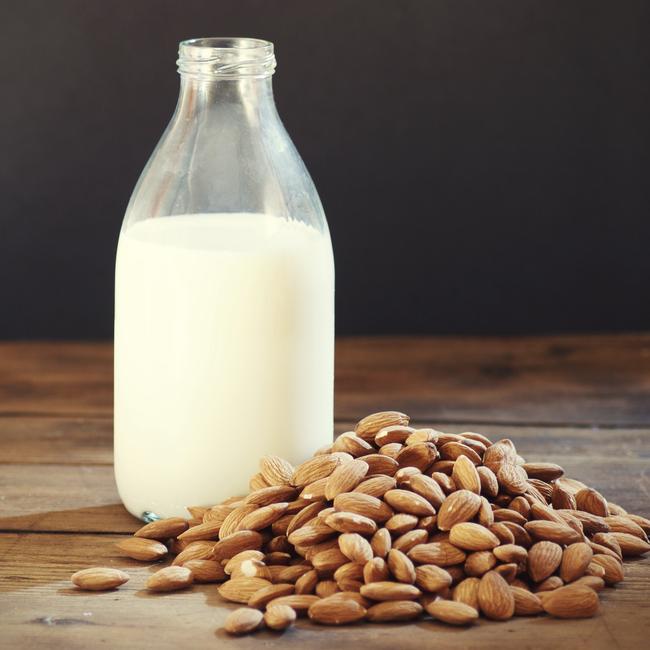
“Three serves of dairy (a day) is associated with achieving a healthy weight, strong bones and decreased risk of osteoporosis, reduced blood pressure and reduced risk of Type 2 diabetes, stroke and cardiovascular disease. So there’s a lot of benefits to having dairy.”
In fact, Bradford says if there are no health problems that would stop you from having dairy, have it.
CHOOSING A PLANT-BASED DRINK
If ditching dairy for you is about environmental and ethical reasons, it’s important to choose your milk substitute carefully, Bradford says.
“There is a lot of plant-based milks out there which I would call plant-based drinks because nutritionally they don’t match the profile of what the dairy milk would provide to you,” she says.
So let’s break it down.
ALMOND MILK
“I call it almond water because it’s actually very low in protein,” Bradford says, revealing most almond milks only contain 2g of protein per serve, compared with more than 8g for full cream, light or skim cows milk.
“If you were to have an almond drink, I’d be looking for a calcium-fortified almond milk and making sure it contains at least 10 per cent almonds within the ingredient listing.”
Cancino agrees and says most almond milks on the market only contain 3 per cent almonds, with the rest water and food gums.
“The commercial brands (are) basically dirty water,” he says.
“People say it’s very low in calories. Do you know what’s also low in calories? Water.”
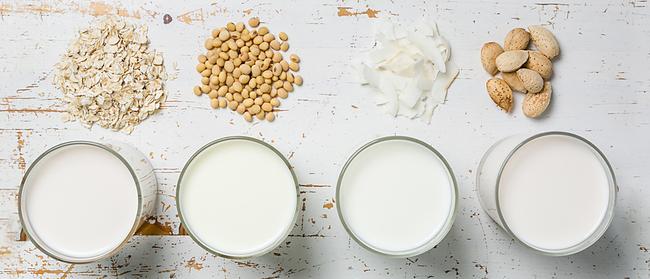
OAT MILK
While this is a good, low-fat option containing beta glucan, which is a beneficial soluble fibre, Bradford says oat milks are usually artificially sweetened and contain only a moderate source of protein.
RICE MILK
Containing just 1g of protein per 250ml serve and with a high glycaemic index, Bradford says rice milks are largely nutritionally void and are only really for people with allergy issues.
COCONUT MILK
“I wouldn’t use it as a replacement to a dairy in a coffee,” says Bradford.
The reason? It contains four times the fat as cows milk, most of it saturated fat, and is high in calories, which can lead to weight gain and cholesterol issues.
Instead reserve it for cooking in things like laksas and curries.
SOY MILK
Nutritionally, this is your best substitute for cows milk, Bradford says.
“It is high in protein. Most soy milks on the market are fortified with calcium and B12. It is low in saturated fats, and certainly the soy protein benefits cholesterol control,” she says.
“One thing I would say about soy milks, though, is try to choose the soy drinks made from soy beans, not just the soy proteinisolate because then it’s as natural as that soy drink can be.”
But regardless of what milk you choose, if it has been fortified with calcium, Bradford says it’s crucial you shake the bottle first to distribute the calcium, as it usually sinks to the bottom of the container and gets thrown out.
CHEESE SUBSTITUTES
The biggest challenge for most people giving up dairy is doing without cheese.
Cancino makes a range of sesame cheeses through his company Fenn Foods, but he and Bradford both agree that doing without cheese is really just something you’ll have to live with if going dairy-free.
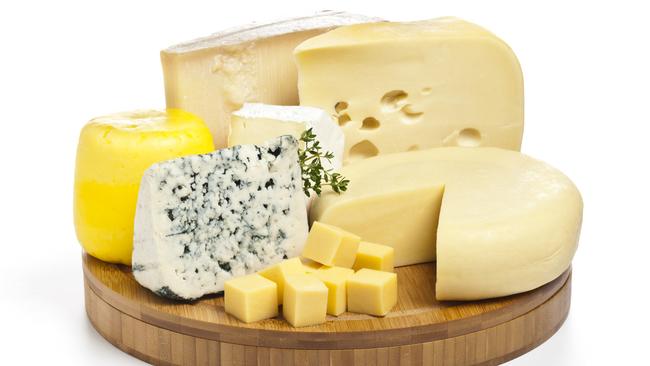
“In my opinion, if you’re going to replace something and it’s not as good, you’ll always be missing the original thing,” Cancino says. “If you say, ‘I put nutritional yeast, cashews and breadcrumbs instead of parmesan’, I’ll be like, ‘OK, that sucks’. Some things you can replicate but some things it’s not worth it.
“You will miss cheese at the beginning but once you stop consuming it for a while, you forget.”
Cancino recommends simply cooking food that doesn’t require cheese, and says you can still have pizza, just choose different toppings.
“I would have pizza with caramelised onion and potatoes and a white sauce and some spices on top or oregano,” he says.
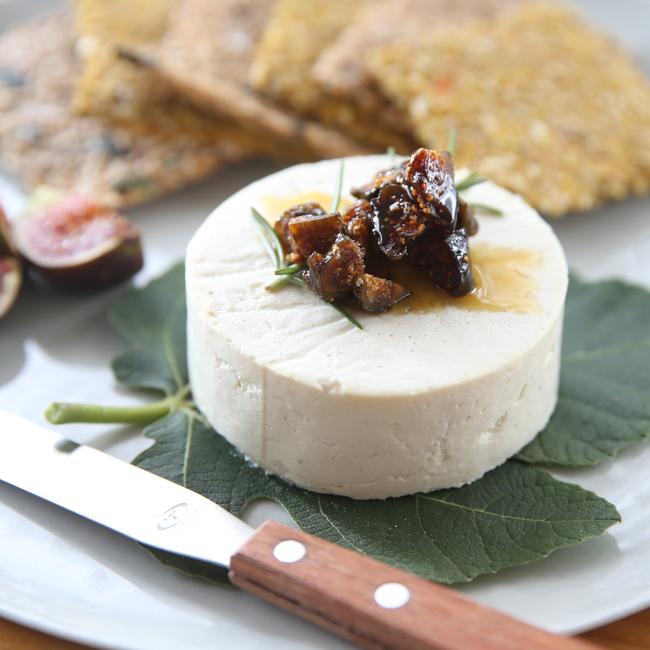
And from a nutritional standpoint, substitute cheeses — usually made with nuts such as cashews — just won’t deliver the same health benefits as regular dairy cheese, Bradford says.
“When was a nut ever meant to be cheese? Nuts are nuts. It’s certainly not bringing in calcium,” she says.
YOGHURT SUBSTITUTES
If you’re eating yoghurt as a source of calcium, Bradford says beware of coconut and almond yoghurts as they often contain no calcium at all.
Coconut yoghurts are also higher in saturated fats and calories, with around a third more calories than traditional dairy options.
If you’re after a yoghurt substitute, Bradford recommends choosing soy-based products, as they have naturally occurring calcium, but always check the back of the pack.
COOKING DAIRY-FREE
For dishes like pasta bakes, lasagne, mac ‘n’ cheese or creamy fish or chicken pies, creating a bechamel sauce with equal parts soy milk and coconut cream will do the trick, Cancino says.
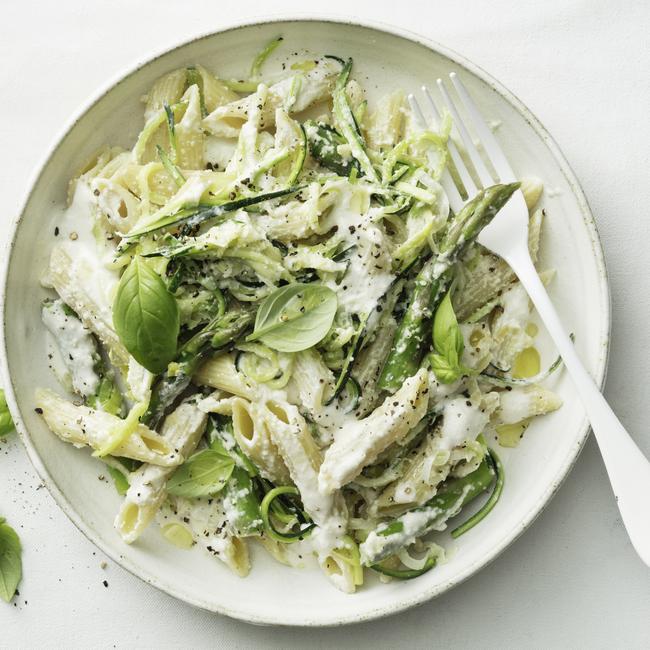
He starts his roux with flour and a mix of vegetable oil and either hazelnut or walnut oil “that gives that nutty flavour”, before adding half coconut cream and half soy milk.
“I don’t use much nutritional yeast or anything like that, but you could use that. I normally go with a bit of nutmeg and salt and keep it clean,” he says.
In fact, the blend of coconut cream and soy milk can work for many dairy-free dishes, Cancino says.
“Coconut is very good, the only issue is the coconut flavour,” he says. “It can overtake whatever you are doing. But sometimes the right amount helps because the fat from coconut is really good.”
He recommends buying either Trident or Kara coconut cream and putting it in the fridge overnight to separate the cream from the water. The water contains most of the coconut flavour, while the cream is the fat for enriching dishes.
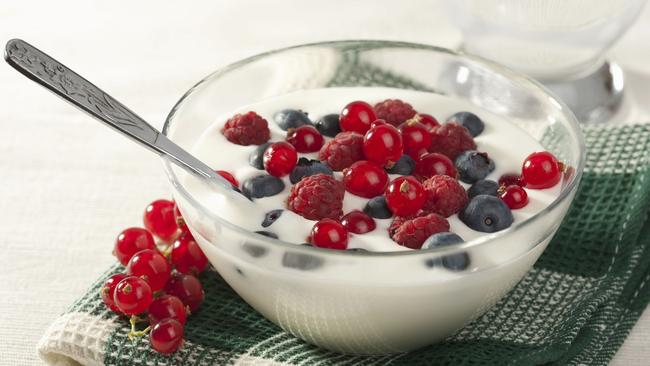
He says adding a dollop of coconut cream is a great way to finish a risotto, giving it the richness normally achieved by adding butter at the end.
While for home made ice creams or panna cottas he likes mixing half coconut cream, half soy milk.
Even a vegan French toast can be created without eggs or milk by combining soy milk, coconut cream and a good quality nut milk or one you’ve made yourself.
“It’s kind of a neutral base but it’s rich enough and it has the fat from coconut, the creaminess from soy and the nice flavour and also creaminess from nuts,” he says.
NUTRITIONAL POINTERS
If you’re committed to going dairy-free or embracing a vegan lifestyle, it needs to be done safely, Bradford says.
The health expert reports seeing many clients present with vitamin B12 and iron deficiencies after taking on solely plant-based diets and says if you’re going to go without the traditional cows milk products it’s important you find the missing nutrients elsewhere.
“In terms of B12, that’s in all animal-based foods and it’s very difficult to obtain B12 through just plant sources, so you need to look at a B12 supplement,” she says.
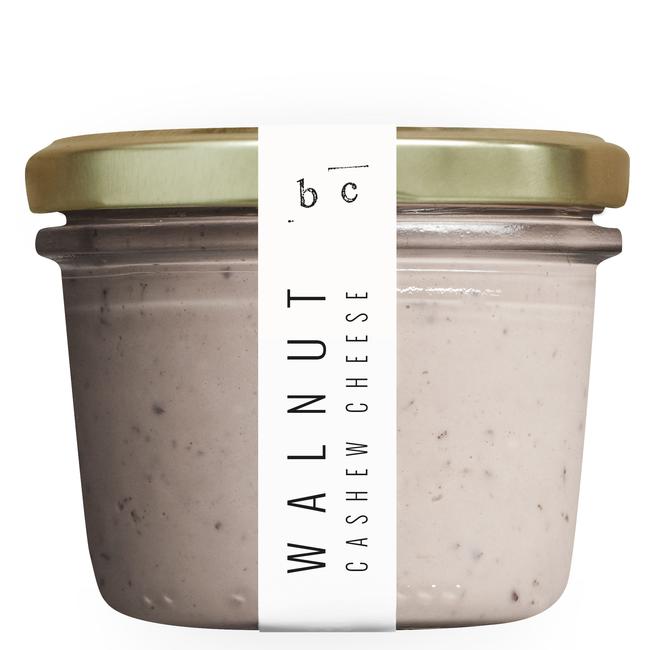
“In terms of calcium, you’d be looking at more plant-based drinks that have been calcium fortified to make sure you get that. If you’re looking at finding a dairy equivalent to match the profile of cows milk, I say to my clients, look at the calcium serve to make sure it’s 120mg per 100ml, and also the protein is at least 3g per 100ml. And also look for an unsweetened variety so you’re not adding more sweetener into that drink.”
MORE: ETHICAL BURGER JOINT CLOSES
As for iron, it’s important to get it through whole grain breads and cereals, fruits and vegetables, particularly dark green leafy veg, lentils and legumes. However, when choosing an entirely plant-based diet, to absorb iron it needs to be consumed with vitamin C rich foods, such as citrus, tomatoes, cauliflower, broccoli, capsicum and Kiwi fruit.
To replace the zinc you would get from dairy products, choose seeds and nuts; while phosphorous and potassium can be found in a variety of fruits and vegetables.


